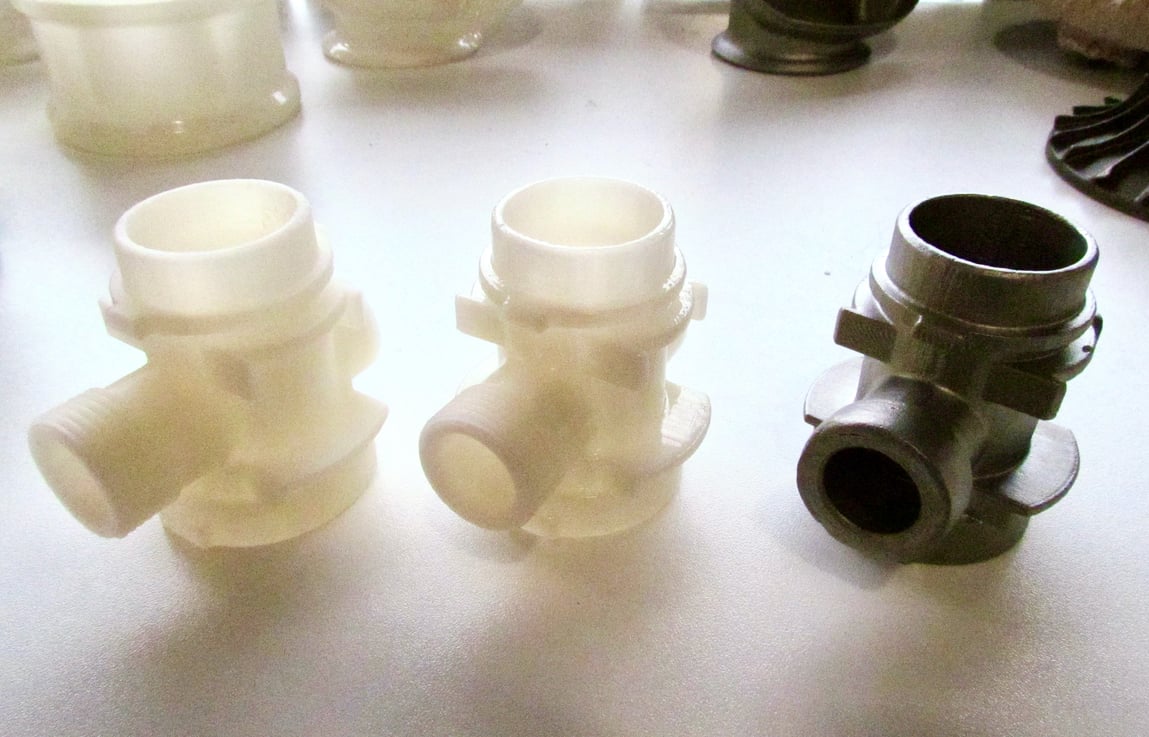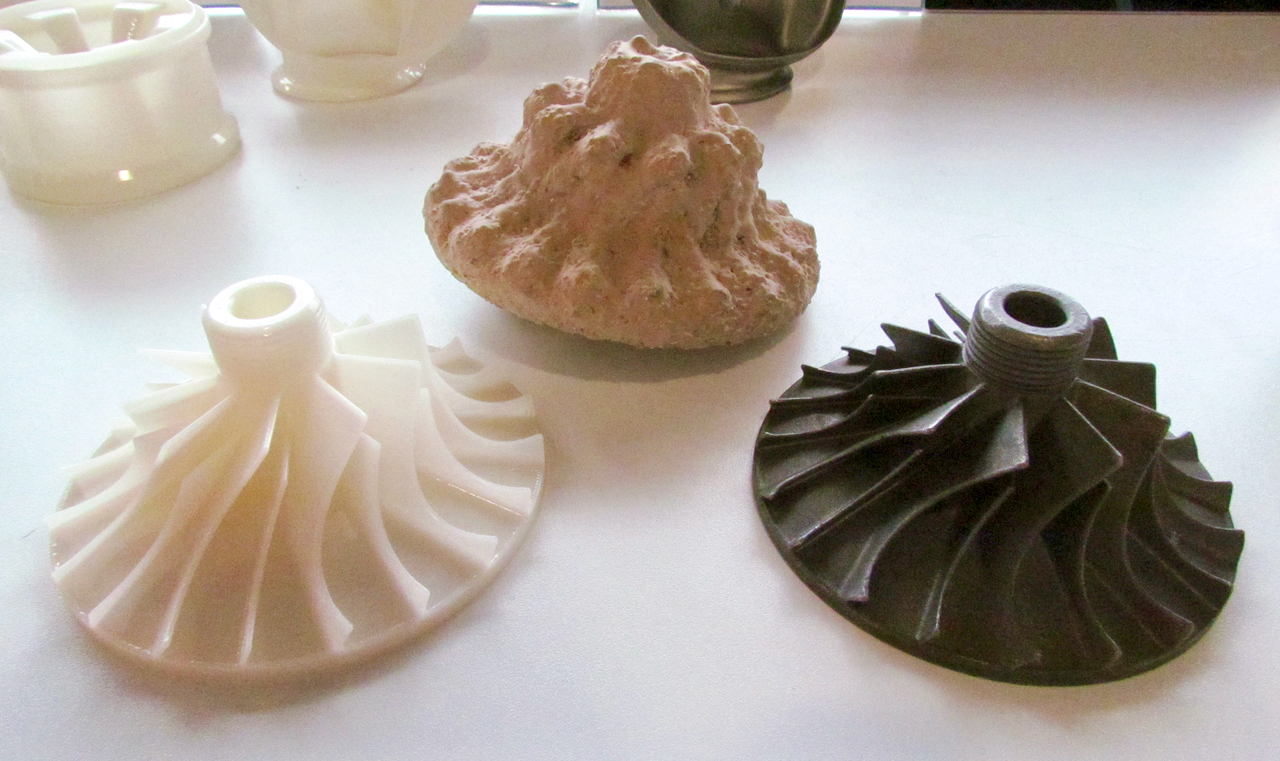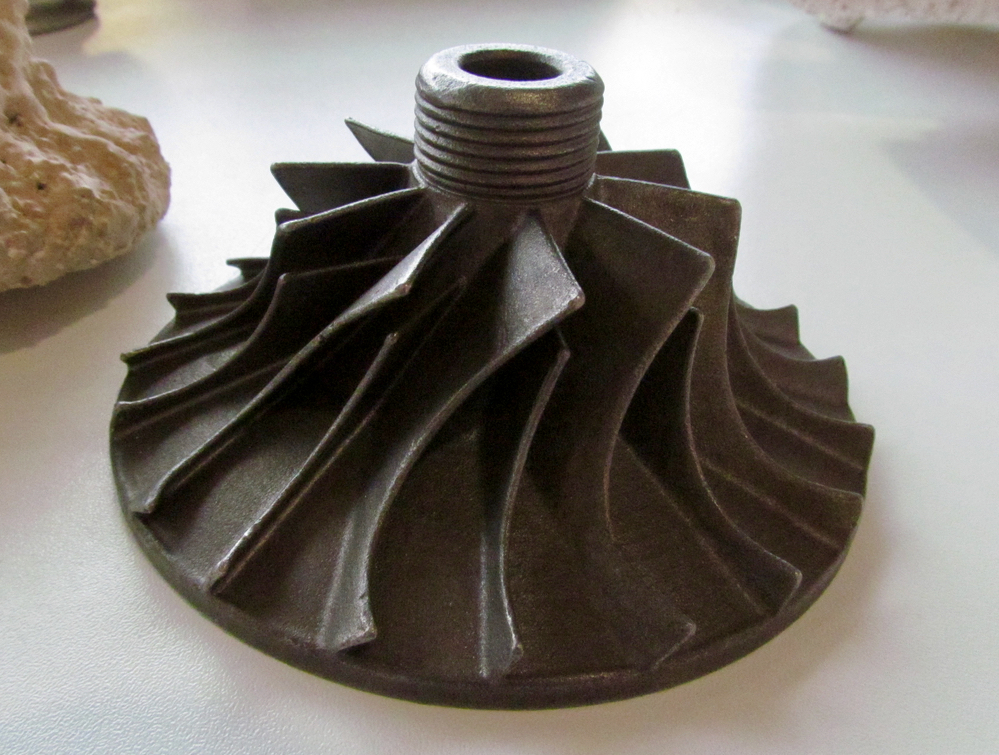
Polymaker is one of those interesting plastic filament companies that keeps inventing unusual products. One of them is their casting solution.
The idea is that you should be able to use a common desktop plastic extrusion-based 3D printer to perform metal casting. This is fantastically less expensive than buying a full 3D metal printer, if you’ve ever looked at their pricing.
Polymaker’s process involves several steps. Here’s how it works:
First, 3D print a “positive” model of the desired metal object using Polymaker’s special PolyCast material. The result will be a plastic object that looks otherwise very similar to any other 3D print. This material is said to be very easy to print in a manner similar to PLA plastic.
Second step: the PolyCast object is smoothed using PolyMaker’s PolySher device; a precision application of isopropyl alcohol slightly melts the object’s surface to make it completely smooth. [We’ll have more on this technology in another post.]
The smoothed print is then surrounded in a casting medium, of which there are many to choose from. In the image above you can see the object surrounded as such.

The casting medium is then subjected to high heat in a furnace. This burns out the PolyCast entirely, leaving nothing but a void in the casting medium in the exact shape of the original print. The PolyCast material is designed to leave virtually no residue.
At this point, liquids can be poured into that void to cast an object. Which materials? Anything that the casting medium can handle, likely including plastics or even metals.
After cooling, the casting medium is removed to reveal the final cast object. Here you can see an example of the process – and it looks very good!

Currently it appears that Polymaker is not yet selling PolyCast directly, but you must make an enquiry to engage them on this product.
Regardless, this concept seems quite viable and should be enable many desktop 3D printer operators to begin effective casting operations at very low cost.
Via Polymaker

